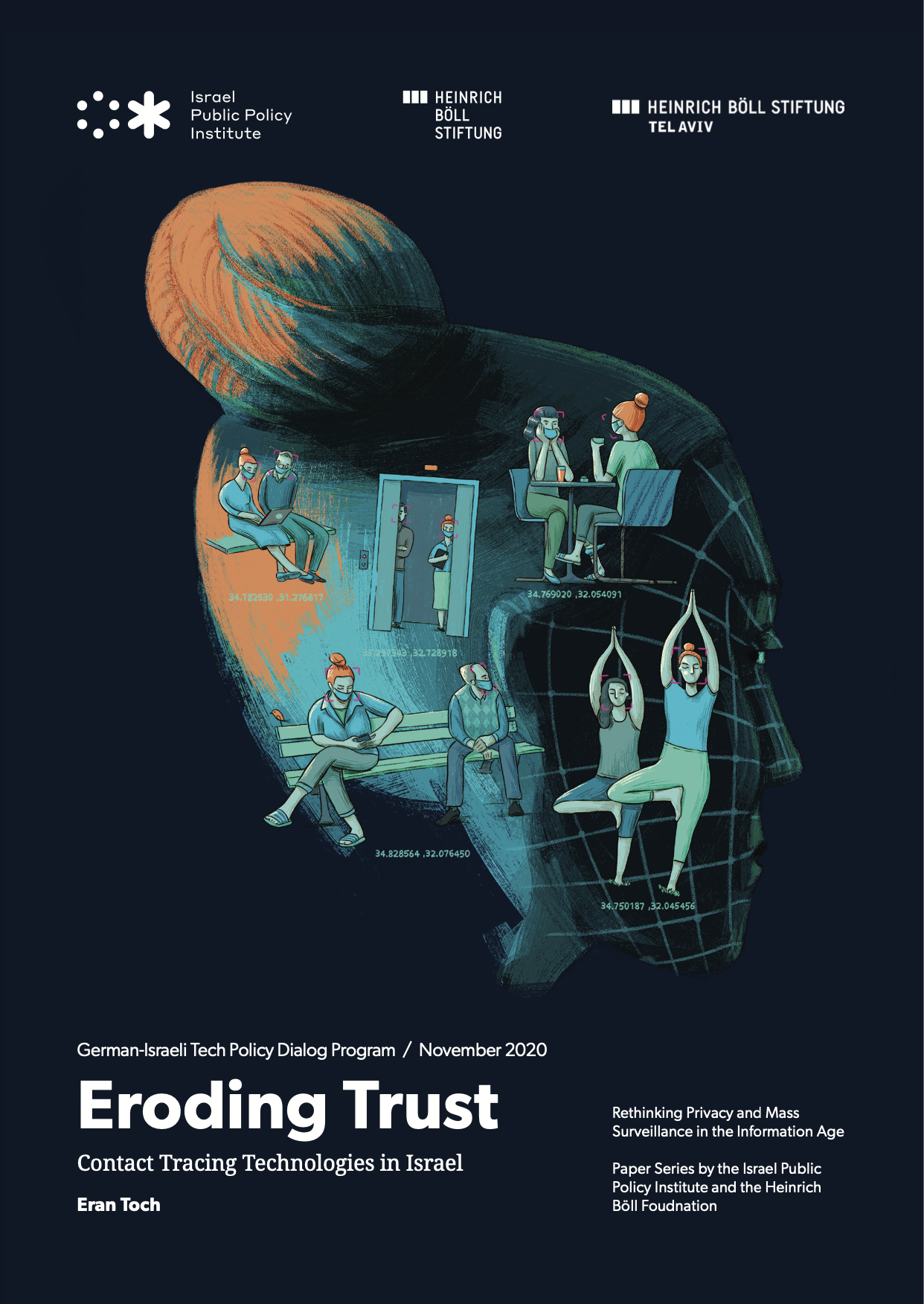Eroding Trust: Contact Tracing Technologies in Israel

Share this Post
Contact tracing technologies can potentially help health organizations and governments stop the spread of COVID-19 by finding and isolating people who have been in contact with Coronavirus carriers. However, they also pose serious threats to privacy, as they are based on identifying and analyzing contacts between individuals. Also, their effectiveness depends heavily on people’s behavior, particularly on the proportion of people who install and use the technology. This behavior may be influenced by people’s perceptions of the technologies’ utility or by their perceptions of the potential privacy threats that may originate from personal information collection. The fast pace of the deployment of these technologies puts individuals into “privacy shock”: the need to immediately form an attitude regarding a new privacy threat and to determine the tradeoff between privacy and utility.
This report analyzes two contact tracing technologies that were introduced by the Israeli government during the early days of the Coronavirus crisis: a privacy-preserving mobile application (“HaMagen,” meaning “the Shield” in Hebrew) and centralized cellular tracking by Israel’s General Secret Service (“The Tool”). The two technologies provide a natural experiment that examines how the characteristics of surveillance technologies shape user’s “privacy shock.” It is explored how these characteristics affect the way people interact with these technologies, as well as their overall success. In this case study, primarily the technologies’ architectures well as the privacy threats they pose are analyzed. Then the possible effects that privacy concerns have on the success of contact tracing technologies are highlighted.
————————————————————————————————————————————————–
The Israel Public Policy Institute (IPPI) serves as a platform for exchange of ideas, knowledge and research among policy experts, researchers, and scholars. The opinions expressed in the publications on the IPPI website are solely that of the authors and do not necessarily reflect the views of IPPI.
Download Full Publication
Policy Paper - Eroding Trust: Contact Tracing Technologies in Israel

Share this Post

What is Digital Constitutionalism? A View from Europe
The Rise of European Digital Constitutionalism In the last twenty years, the policy of the European Union in…

Digital Campaigns’ Trends in the General Elections for the 24th Knesset
Introduction: Algorithmic Campaigns Social media platforms have significantly changed the ways in which political campaigns are run, due…

Flying high? Unmanned aircraft and the future of transportation
Unmanned aerial vehicles (UAV) and unmanned aircraft systems (UAS), commonly termed ‘drones’, have the potential to become some…
